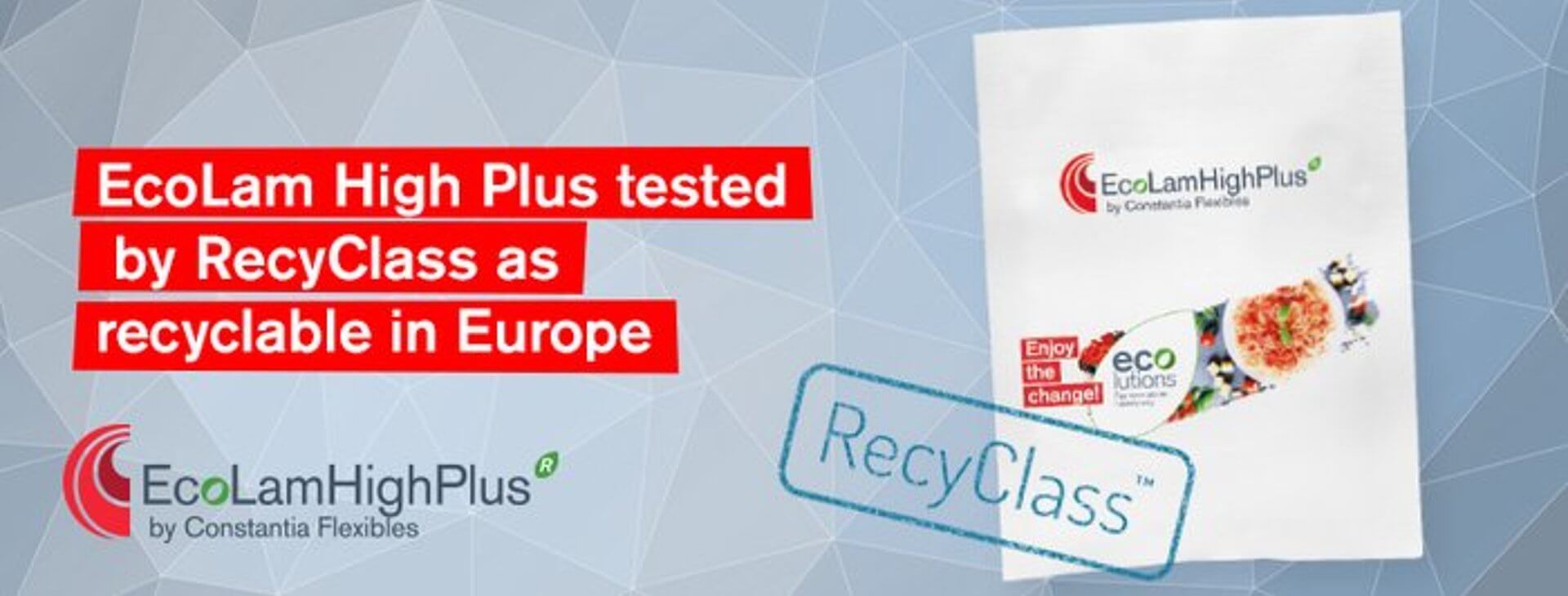
EcoLamHighPlus tested by RecyClass
EcoLamHighPlus first tested by RecyClass to be recyclable in Europe
First technology for PE Film ‘EcoLamHighPlus’ by Constantia Flexibles tested by RecyClass
The findings of an independent laboratory testing of ‘EcoLamHighPlus’ technology show it is consistent with recycling. It improves the recyclability of the current, widely available technologies for functional barriers used in PE films. This innovative structure is a mono polyethylene (PE) laminate that is applicable in a broad variety of packaging applications ranging from dried soups to coffee and its high barrier needs. ‘EcoLamHighPlus’ contains a functional barrier that combines ethylene vinyl alcohol (EVOH) and aluminium metallization which at the same time is below 2% of the total film weight. This barrier is used for preserving goods from exposure to water vapour and oxygen, mineral oil migration and aroma losses.
According to the results of an independent laboratory, carried out as per the RecyClass Recyclability Evaluation Protocol for PE films, this new technology conforms to the current European PE film recycling stream provided it is used under specific conditions. These include:
a) the density of the printed film cannot exceed 1 g/cm3,
b) printing technology that is applied must be compatible with RecyClass design for recycling guidelines,
c) the ‘EcoLamHighPlus’ cannot exceed 10% of the whole European LDPE flexible film market share.
These results will be used also to update and enhance the RecyClass ‘Design for Recycling Guidelines’ which are one of the components serving as guidance for the recyclability evaluation. Currently, other technologies are being tested which will be accordingly, subject to the technology approval by RecyClass.
Most commonly used oxygen and water & vapour film barriers put on the European market nowadays have a detrimental impact on the recyclability of PE films which implies that a product has significant design issues affecting its recyclability. Whereas ‘EcoLamHighPlus’ is graded as ‘Conditional’ as it proves to advance quality recycling. As a result, it is relevant for high-value applications.
As polyethylene film is commonly used in the packaging sector, these findings contribute to the constructive developments within the design for recycling discussion and, more broadly, working towards improving the circularity of plastics.